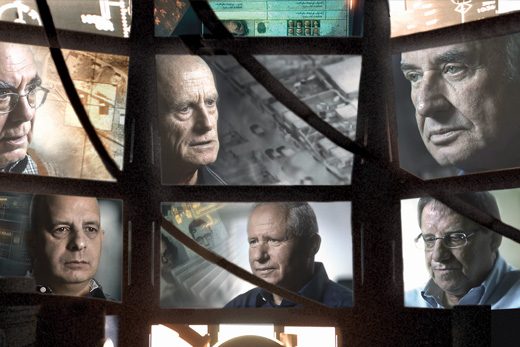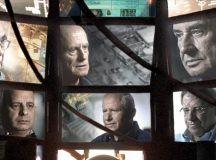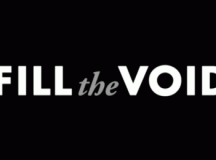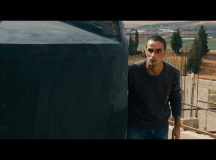The Gatekeepers is a masterpiece in a landmark year for Israeli documentaries.
The last fifteen years have seen a stream of brilliant Israeli documentaries on topics such as the rift between secular and ultra-orthodox communities (Black Bus), the Israeli-Palestinian conflict (Nine Star Hotel), the Holocaust (A Film Unfinished) and gay rights (Paper Dolls). Even so, 2012 was a landmark year, with The Law in These Parts and The Gatekeepers not only telling dramatic stories using well-honed conventions but reinventing the genre.
In the 1990’s Dror Moreh was a leading cinematographer (Desperado Square) before turning to documentary filmmaking. Perhaps this is why The Gatekeepersis so ravishing. Extensive CGI work is used to animate undercover intelligence and anti-terrorism operations that were never caught on film. In one scene the historic photographs captured by renowned photographer Alex Levac at the site of the Bus 300 commando raid are turned into an animated recreation of that low-point in the history of the Shin Bet (Israel’s equivalent to MI5).
Moreh took upon himself a daunting task: to interview the last six heads of the Shin Bet, the agency in charge of intelligence retrieval and undercover operations in Israel and the territories since 1967. During the First Lebanon War it was the Shin Bet, and not the Mossad (Israel’s equivalent to MI6) that was in charge of intelligence retrieval, making it the dominant agency in Israel’s intelligence community. However, setbacks in the 1980s and the 1990s diminished its power: the Bus 300 incident, which forced the head of the agency to resign; the outbreak of the First Intifada; and the assassination of Yitzhak Rabin, which seemed to prove that Jewish terrorism was a blind-spot.
The six retired bureau heads speak with candor and eloquence, even about their own failures. Two argue that, in retrospect, Israel’s presence in the West Bank was a mistake; and it now poses a clear and present danger to the soul, if not the security, of the state. One of former agency director’s states: ‘It’s hard not to turn into something of a leftist once you leave the Shin-Bet’.
The Gatekeepers had a budget of 1.5 million dollars, making it the most expensive Israeli film of any genre this year. It was screened in 2012 at America’s major film festivals (including the highly selective New York Film Festival), and was mentioned as one of the year’s best films in numerous end of year lists, among them The New York Times’ A.O. Scott who chose it as the year’s best documentary. Both Five Broken Cameras – Emad Burnat’s moving account of life in his native Bil’in in the West Bank – and The Gatekeepers have also been nominated for the Documentary Feature category at the Oscars. It is extraordinary that two of the five nominated films for the Oscars, chosen from 160 submissions, are from Israelis and Palestinians.
In addition to this international success, Israeli documentary features have been drawing crowds on their home turf as well. The Flat – the story of documentary-maker Arnon Goldfinger clearing out the flat of his grandparents, both immigrants from Nazi Germany, and discovering a trail of clues pointing to a remarkable and hidden past – has become a box-office success in Israel with nearly 50,000 admissions. It was in fact the fourth most watched Israeli film in Israel in 2012, besting many narrative features.
As ‘dove-ish’ as The Gatekeepers is, it did not get an audience in Europe – perhaps a film which put the administrators of Israel’s occupation under a bright light, but not a harsh one, was perceived as complacent. In this regard, the counterpoint to The Gatekeepers is Five Broken Cameras, co-directed by Palestinian Emad Burnat and Israeli Guy Davidi. The two films represent different documentary film-making styles: The Gatekeepers is studio filmed, interview driven and told in hindsight by the people in power; Five Broken Cameras is an activist film, shot in real-time, chronicling events in the first-person as they unfold – telling an infuriating, brutal and tragic story. Each shows the occupation from a different point of view. It says much about the renaissance in Israeli and Palestinian documentary-making that both are masterpieces.





































